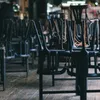MakeMyTrip Founder Deep Kalra on how we'll travel in a post-COVID-19 world
In a conversation with YourStory, MakeMyTrip Founder Deep Kalra talks about how coronavirus has hit the travel industry, and the road ahead. He also has a message for startups and entrepreneurs.
The travel and tourism industry, which contributes nearly 10 percent to India’s (Gross Domestic Product), is without doubt one of the worst affected sectors amid the coronavirus pandemic. The CII (Confederation of Indian Industry) estimates a loss of a whopping Rs 5 lakh crore to the sector, which may result in five crore jobs being lost.
To better understand the impact of the coronavirus on the travel industry and the road ahead, caught up with India’s largest travel booking company Founder Deep Kalra.

MakeMyTrip Founder Deep Kalra
One of India’s early internet successes, MakeMyTrip turned 20 last month.
Over the last two decades, the Gurugram-based company has witnessed and survived several global crises: the dot-com bust, the 9/11 attacks, and the global financial crisis of 2007-08, to name a few. But the challenge it faces today with the coronavirus crisis, as a result of which the travel and tourism sector has come to an absolute halt, is gargantuan in nature and will perhaps be the toughest fight the company has faced.
In this interview, Deep talks about how badly coronavirus has affected the sector, what travel and tourism may look like in the future, how the government can help the ailing industry, among several other things.
He also has a message for startups and entrepreneurs, many of whom are bleeding badly amid the unforeseen and unprecedented crisis.
Read on to find out.
YourStory (YS): How badly is the travel and tourism industry affected by COVID-19? Can you give us a sense of the impact in terms of numbers? What kind of job losses are likely to take place in the industry because of the coronavirus?
Deep Kalra (DK): The travel and tourism industry has been one of the first to have faced the economic sting of the coronavirus pandemic globally. With sealed international borders, suspended flights, compounded further by countrywide lockdown with intercity and interstate travel forbidden for weeks – travel and tourism has come to a complete standstill.
The tourism and hospitality industry will continue to feel the heat as the restrictions imposed on travel will ease only gradually, and apprehension to travel will persist for many more months.
The CII has pegged the estimated losses at Rs 5 lakh crore, which could result into five crore people losing direct and indirect employment.
With liquidity drying up, the industry is on life support and is in dire need for a survival package from the government to bear the most brutal event in the history of our industry.
YS: How long do you think it will take for both the sector and MakeMyTrip to recover from this slump?
DK: Given the unpredictable nature of the spread of the virus, it’s hard to draw solid lines. While the recovery will be sluggish, the first phase of travel will be led by immediate and essential travel with people travelling back home, to their city of work or for medical purposes. The subsequent phases will see business-related travel followed by leisure travel as fear subsides from travellers’ mind.
We foresee domestic travel as the first area that will likely show green shoots of recovery and could prove to be a force multiplier for the industry to survive and recover from the impact of the coronavirus pandemic.
However, international travel may take a few quarters or more to open up.

The travel and tourism industry contributes nearly 10 per cent to India's GDP.
YS: How do you see the industry changing? Will travel and tourism ever be the same again?
DK: The pandemic is a cataclysmic event for the travel and tourism industry.
Just the way security protocols around flying changed fundamentally post 9/11 – we foresee an even more sweeping impact across the travel and hospitality value chain as a result of COVID-19.
The industry will have to prioritise safety and hygiene at every step to rebuild confidence in traveling again. The customers will seek reassurance on safety and hygiene standards at all times.
The pandemic will also bring along a shift in travel choices and destination preferences with many choosing to travel to lesser-known tourist spots and opting for stays that offer innovative in-room experiences to avoid human contact as they will continue to prioritise social distancing in the future.
Unfortunately, some of the preferred formats of travelling before the outbreak, like group tours and activities, and mega-scale events, will take a hit, as people will avoid these for the foreseeable future.
YS: How can the government help the industry?
DK: Travel and tourism contributes very significantly towards the economy, and it needs immediate liquidity support measures from the government to stay afloat during these challenging times.
The industry is in dire need for short and midterm liquidity in order to meet the fixed costs during the lockdown period, as well as for rebuilding businesses almost from scratch.
So, any support on loans with easy terms for mid to long-term would be of immense help. Loans could be extended looking at the track record of the companies and their potential paying capacity, etc., but with a long-term view, rather than taking a conventional, super conservative, and collateral-based lending approach.
YS: What is the size of the travel and tourism industry in India, and how many people does it directly and indirectly employ?
DK: The industry contributes over 9 percent to India’s GDP and generates employment for more than 12 percent of the total workforce. Apart from a strong growth trajectory on its side, the travel and tourism industry offers immense opportunities for both organised and unorganised segments within the sector.
The Confederation of Indian Industry (CII) estimates that the tourism industry is staring at an overall loss of Rs 5 lakh crore and job cuts impacting up to five crore people.
Globally, the aviation sector has been one of the hardest hit, and the situation is dire in India with many looking at job cuts and even closure.
YS: At MMT, what kind of measures are you taking to fight this unforeseen economic hit? The co-founders are foregoing their salaries and you’ve affected salary cuts for others. Are job cuts a possibility as well?
DK: As any business, we have focussed on bringing our operating costs under acceptable levels till the situation improves. These are difficult times and we are not only reducing variable costs to match the revenue decline, but are also looking at optimising all our fixed costs, including outsourced costs.
On the people costs front, Rajesh (Magow, Co-founder and Group CEO) and myself have taken the lead and will be taking zero salary effective April 2020, while the rest of our leadership team have also offered to take a reduction of approximately 50 percent in their compensation.
As the situation continues to remain dynamic, we will keep assessing all costs and act as the situation demands.
We have been using this downtime to focus on revival strategy for the industry and the business, as travel opens up gradually. We are working closely with various ministries, government authorities, and industry bodies, as well as industry peers on various facets that will support resumption of services; be it the public-private partnership for the launch of Aarogya Setu App, introduction of new protocol and safety standards for travel across segments or recommending the stimulus needs for the industry.
On the business front, our teams have been doubling down on product innovation to enhance our offerings attuned to altered travel choices, preferences, and expected traveller behaviour post-lockdown
YS: What kind of (lockdown) exit plan can India put into place according to you?
DK: The lockdown was required to build capacity and slow the spread of the infection. The government rightly announced the lockdown early on for the same reason, and it’s time now to test the systems and capacity build-up put in place during the period of lockdown. While the focus has rightly been on saving lives, protection of livelihood is as critical for a country like India. That is why it’s time for graded opening and resumption of economic activities in a calibrated manner under new safety norms and protocols.
The government must also timely intervene to support industry and seed optimism through a stimulus package to help rebuild, revive, and survive, on priority.
The groundwork of setting up medical aid and infrastructure to fight the virus has been done, and we must now swiftly shift gears to reboot the economy.
YS: Your message to startups and entrepreneurs, many of whom are struggling in this phase?
DK: This is an unprecedented crisis and there is no playbook for this kind of crisis. So, you have to hunker down and persevere.
Goes without saying that it’s time to conserve cash and be austere – always prepare for the worst-case scenario as you take up financial budgeting exercise.
As an entrepreneur, you have to muster optimism so that you are able to address anxieties of your team.
Edited by Megha Reddy










